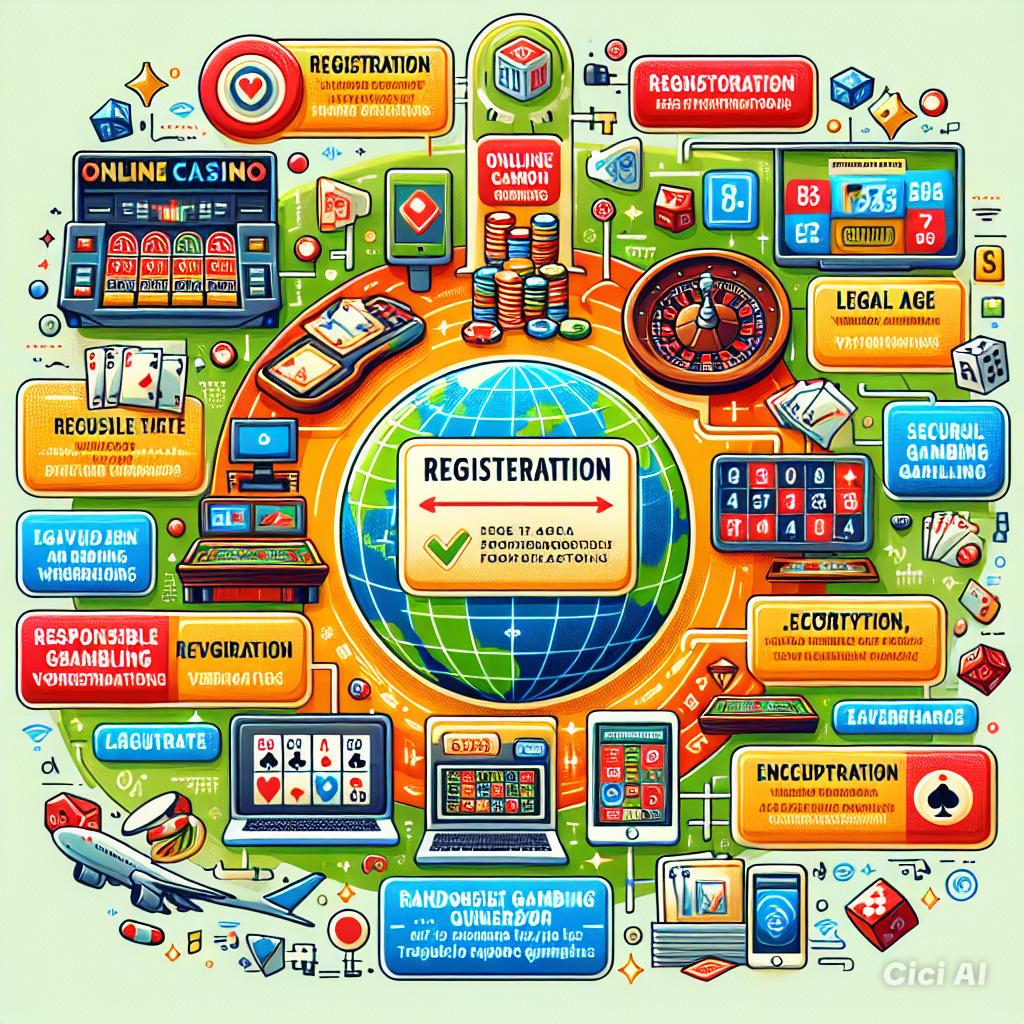Table of Contents
Introduction
The allure of online casinos has captivated millions of players worldwide, offering the excitement of gambling from the comfort of one’s home. However, with this convenience comes the necessity for strict regulations to ensure fair play, secure transactions, and the protection of vulnerable individuals. Understanding online casino regulations is essential for both operators and players to navigate the complex landscape of online gambling safely and legally.

The Importance of Online Casino Regulations
Online casino regulations serve multiple purposes, primarily focusing on ensuring a safe and fair gaming environment. These regulations protect players from fraudulent activities, ensure that casinos operate transparently, and help prevent issues such as money laundering and underage gambling. Regulatory bodies enforce these rules, providing licenses to casinos that meet stringent criteria, and continually monitoring their operations.
Key Regulatory Bodies
Several key regulatory bodies oversee online casino operations worldwide. Some of the most prominent include:
- United Kingdom Gambling Commission (UKGC): Known for its strict regulations, the UKGC ensures that all licensed casinos adhere to the highest standards of fairness and security.
- Malta Gaming Authority (MGA): The MGA is a well-respected regulatory body that provides licenses to many of the world’s leading online casinos. It focuses on ensuring fair gaming, protecting players, and promoting responsible gambling.
- Gibraltar Regulatory Authority (GRA): Another reputable authority, the GRA oversees many online casinos, ensuring they operate transparently and adhere to strict regulatory standards.
- Curacao eGaming: While not as strict as the UKGC or MGA, Curacao eGaming is one of the oldest online gaming regulators, providing licenses to numerous online casinos, particularly those targeting international markets.
Licensing Requirements
Obtaining a license from a reputable regulatory body involves meeting several key requirements:
- Fair Gaming Practices: Casinos must use Random Number Generators (RNGs) to ensure the fairness of their games. These RNGs are regularly audited by independent testing agencies.
- Financial Security: Casinos must demonstrate that they have the financial resources to operate sustainably and pay out winnings to players promptly.
- Data Protection: Protecting player data is crucial. Casinos must implement robust cybersecurity measures to safeguard personal and financial information.
- Responsible Gambling: Casinos are required to promote responsible gambling, providing tools for players to set deposit limits, take breaks, or self-exclude if needed.
Jurisdictional Differences
Online casino regulations vary significantly from one jurisdiction to another. Some countries have embraced online gambling, establishing clear regulatory frameworks, while others have imposed strict bans or operate in legal grey areas.
- Europe: Many European countries, such as the UK, Malta, and Sweden, have comprehensive regulatory frameworks in place. These jurisdictions often collaborate, recognizing each other’s licenses and standards.
- United States: Online casino regulations in the US are complex, with each state having the authority to legalize and regulate online gambling independently. States like New Jersey, Pennsylvania, and Michigan have well-established online gambling markets, while others continue to debate the issue.
- Asia: In Asia, online gambling regulations vary widely. Countries like the Philippines and Cambodia have established regulatory frameworks, while others, such as China and India, impose strict restrictions.
Player Protection Measures
Regulatory bodies emphasize player protection through several key measures:
- Self-Exclusion Programs: Players can voluntarily exclude themselves from gambling for a specified period or permanently.
- Deposit Limits: Players can set limits on their deposits to manage their gambling spending effectively.
- Reality Checks: Casinos provide regular reminders to players about the time and money they have spent gambling.
- Support Services: Casinos must offer links to support services for players who may be experiencing gambling-related issues.
The Future of Online Casino Regulations
The online gambling industry continues to evolve rapidly, with technological advancements such as blockchain and artificial intelligence presenting new challenges and opportunities for regulators. Future regulations will likely focus on enhancing cybersecurity measures, promoting responsible gambling through advanced analytics, and ensuring fair play in an increasingly digital landscape.
Additionally, the growing trend of international cooperation among regulatory bodies may lead to more standardized regulations, making it easier for players to understand and trust online casinos regardless of their location.
Conclusion
Understanding online casino regulations is crucial for both operators and players. These regulations ensure a safe, fair, and transparent gaming environment, protecting players and promoting responsible gambling practices. As the industry evolves, staying informed about regulatory changes and choosing licensed, reputable casinos will help players enjoy the online gambling experience safely and responsibly.

